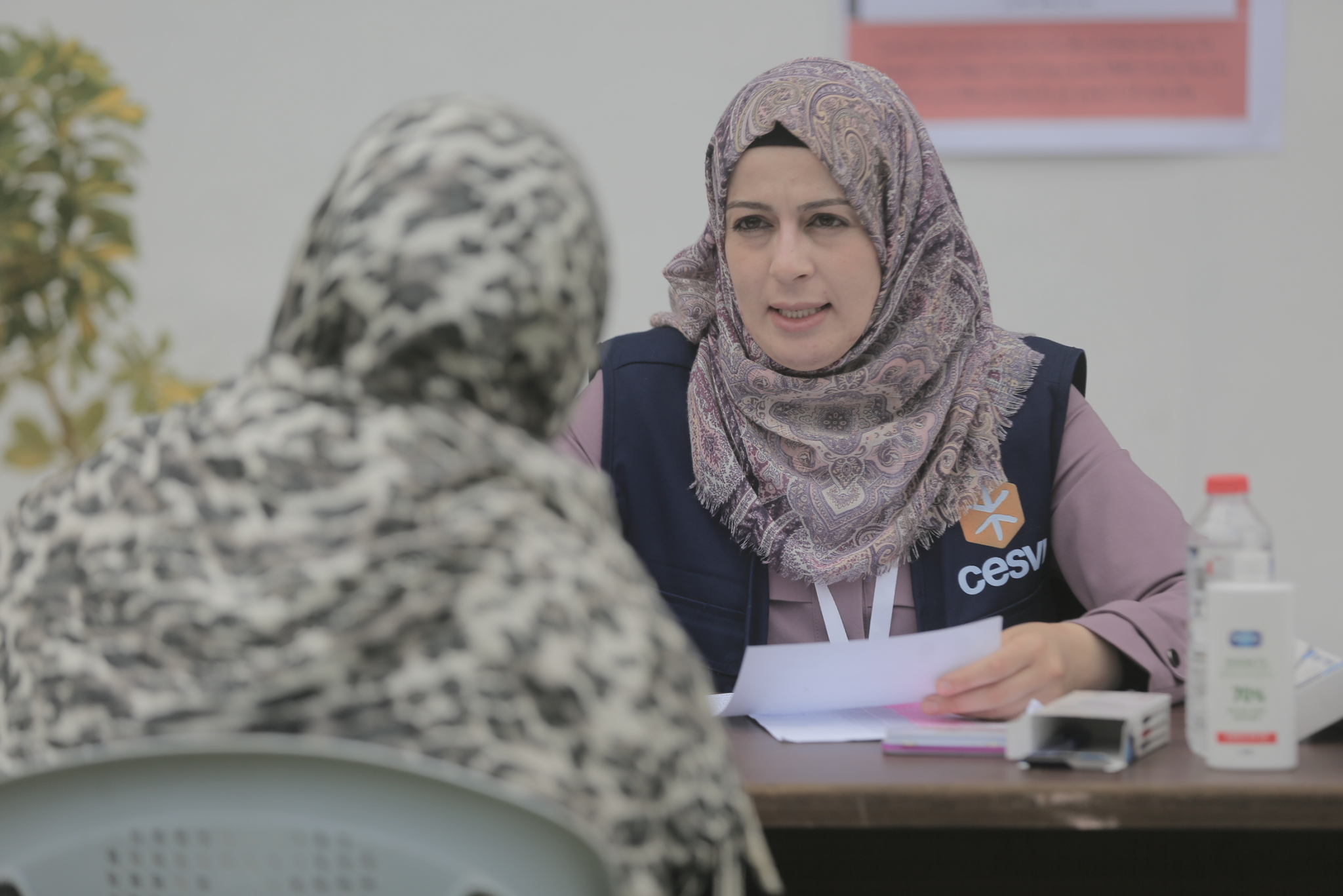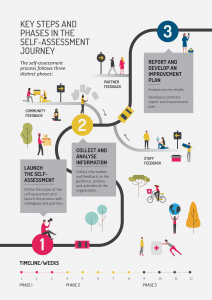Preparation for donor assessments: how CHS self-assessment helped pave the way
Italian-based international aid organisation and CHS Alliance member Cesvi started its CHS self-assessment process in 2018. To hear how the process helped prepare the ground for an organisation’s donor due diligence requirements, we interview Camilla Azzini, MEAL Officer.
Why did Cesvi decide to undertake a self-assessment verification against the CHS?
When Cesvi considered undertaking CHS self-assessment for the very first time, it was with our long-term goal of achieving a future CHS certification in mind. We wanted to conduct a broad assessment of our work that approached improvement in multiple ways. The CHS self-assessment not only looked at HR management, but also accountability, safeguarding and programme quality among others, all at the very same time.
Did anything surprise you about CHS self-assessment? What did you learn?
The first achievement was that the whole organisation increased its knowledge and familiarity with the Core Humanitarian Standard on Quality & Accountability (CHS) during the self-assessment. We organised country visits that focussed on one or two Commitments per session, with a mix of training and reflection time.
Once we had completed the self-assessment, we utilised the learning and materials produced to facilitate reflection workshops on quality an accountability at country-level, using the CHS as the frame. During both the self-assessment and the follow up CHS workshops, we could see that for country staff the process allowed them to take a break from everyday implementation to reflect on quality and the overall purposefulness of our work. Not only that, but we were able to create a neutral ground for discussions between different departments at country level, and with partners.
From the HQ perspective, the most valuable part of the process was harvesting the richness of both codified practice – our procedures – and “hidden practice” – those informal systems developed by country offices and project teams we were not aware of. The CHS self-assessment allowed us to capitalise on these new, hidden ways of working. We could internally codify, systematise and share them across the whole organisation.

Cesvi staff involved in water tank distribution, Gaza, 2020. ©Cesvi
Have you made any changes since undergoing CHS self-assessment? Have you received any feedback as a result of these changes?
Cesvi made changes, most of them based on the Improvement Plan that is the final stage of the self-assessment. Some priority areas have included:
- Re-organisation of the Cesvi-wide Safeguarding system;
- Strengthening of AAP provisions and practices in countries;
- Our overall approach to training and induction for all staff.
How do you feel about the CHS self-assessment now it’s complete?
The process brought us new competencies in the organisation, above all in terms of accountability. Almost three years since we started, we can say that the CHS Verification Framework and self-assessment were the right tools at the right time. We have already seen many positive returns from having started implementing the Improvement Plan generated by the self-assessment.
“A very practical one is that, having the Improvement Plan in place helped Cesvi to organise its preparation to the 2020 ECHO FPA Ex-Ante Assessment, as we already knew our areas of weaknesses and strengths.”
Which aspects of the self-assessment were the most useful for preparing ECHO’s FPA process? Was any particular Commitment of the CHS, or even individual indicators especially relevant to the ECHO process?
Having undertaken the CHS self-assessment before the ECHO FPA Ex-Ante assessment, helped Cesvi to be prepared for both the assessment itself and also the auditing process.
In terms of the ECHO FPA Ex-Ante assessment, some areas were already being improved by the capacity building work Cesvi had initiated two years before due to the CHS self-assessment.
Implementing the CHS self-assessment Improvement Plan meant that we had started on a wide range of activities audited by ECHO, including:
- better operationalising existing formal provisions;
- developing systems of policies, procedures and Standard Operating Procedures to fill the identified gaps in the organisation responsibilities;
- investing in more and different training to ensure guidance, policies and procedures were well-known and practiced internally.
Due to this on-going work, Cesvi scored positively under areas that three to four years ago we were weaker on.
Turning now to ECHO’s external auditing, many of Cesvi’s processes – programming, identification of proposals, need assessments, monitoring etc – had already been investigated and described in the CHS self-assessment summary report. This helped us to have up to date information about sources of verification that could support the audit checks, both for documentation and evidence checks.
When the Ex-Ante Assessment’s Terms of Reference were published, our team matched the 62 indicators of the CHS Verification Framework with the 30 requirements of the ECHO-FPA Assessment. Cesvi’s CHS Alliance membership and the self-assessment process were also mentioned by the auditor in charge of the ECHO FPA Ex-Ante Assessment.
There is obviously not a complete overlap between the CHS Verification Framework and the ECHO-FPA Ex-Ante assessment questionnaire, because the two verifications each has a different purpose. The ECHO questionnaire investigates budgeting, anti-fraud and corruption systems, compliance and internal control in more depth, while it does not go into as much detail on quality elements like learning management, community’s participation and AAP measures.
Of course, we are still waiting to hear our ECHO results, but overall the CHS self-assessment helped Cesvi become well prepared for the FPA Ex-Ante Assessment.
Do you have any other experiences with using the self-assessment as a basis for completing other donors’ requests?
The CHS self-assessment was a reference for us as we completed the NGO institutional profile for the Canada Department of Foreign Affairs, Trade and Development, and the UNICEF PSEA assessment. The self-assessment also helped us during proposal developments for OCHA, USAID and the Global Fund.
There’s a well-known convergence of the different donors’ assessment/due-diligence corporate processes. Having the CHS as a reference standard helps Cesvi respond to due diligence requests from donors. However, until full alignment is reached, we will always need will to tailor information for each donor template.
“As an attempt to have a more permanent framework, Cesvi has now linked the CHS Verification Framework to our Risk Management Framework. The idea is that fulfilling Q&A standards (above all the CHS) will mean that we are compliant with all due diligence processes, while not meeting the Standard would expose the organisation to risks.”
Finally, are you planning to renew the CHS self-assessment next year?
We definitely don’t want to break the learning and improvement loop we started back in 2018 and will perform a new self-assessment soon. We really want to learn from different stakeholders on what impact our Improvement Plan had on our way of operating and serving. We are determined to renew our efforts towards greater quality and accountability with a new Improvement Plan!
See all the CHS Verification options.

